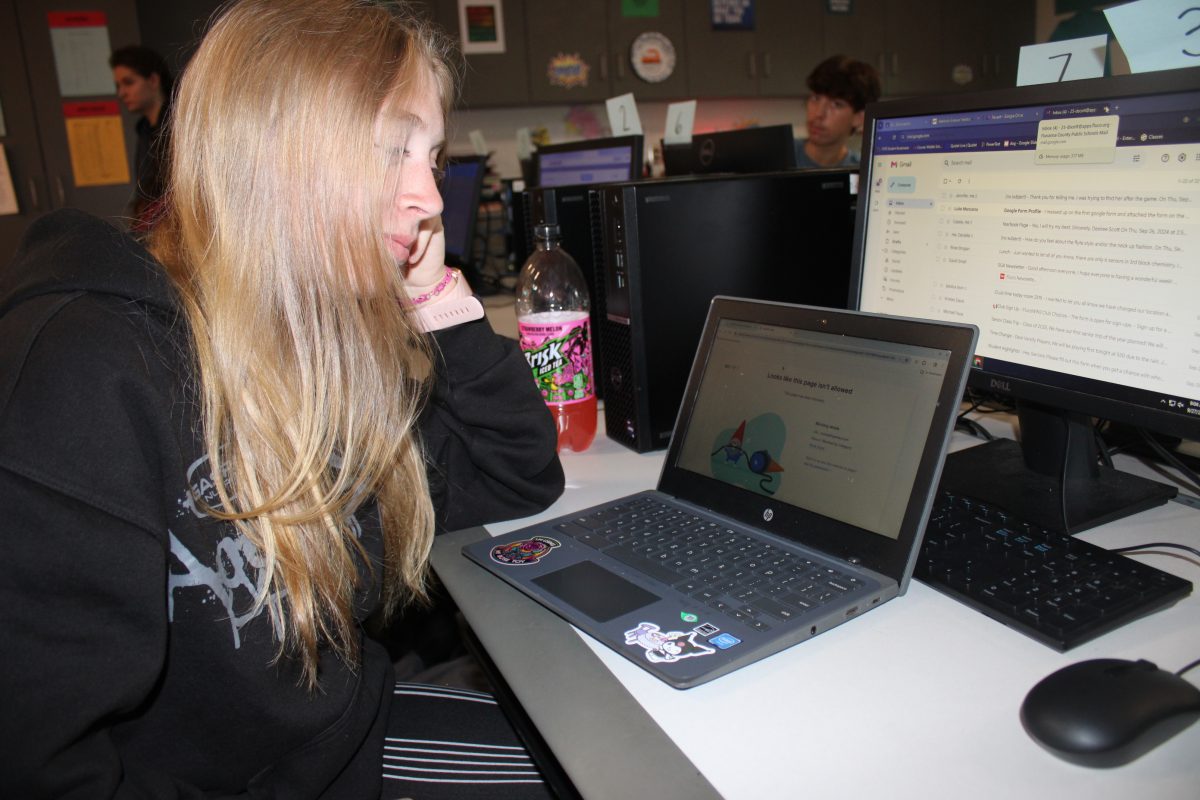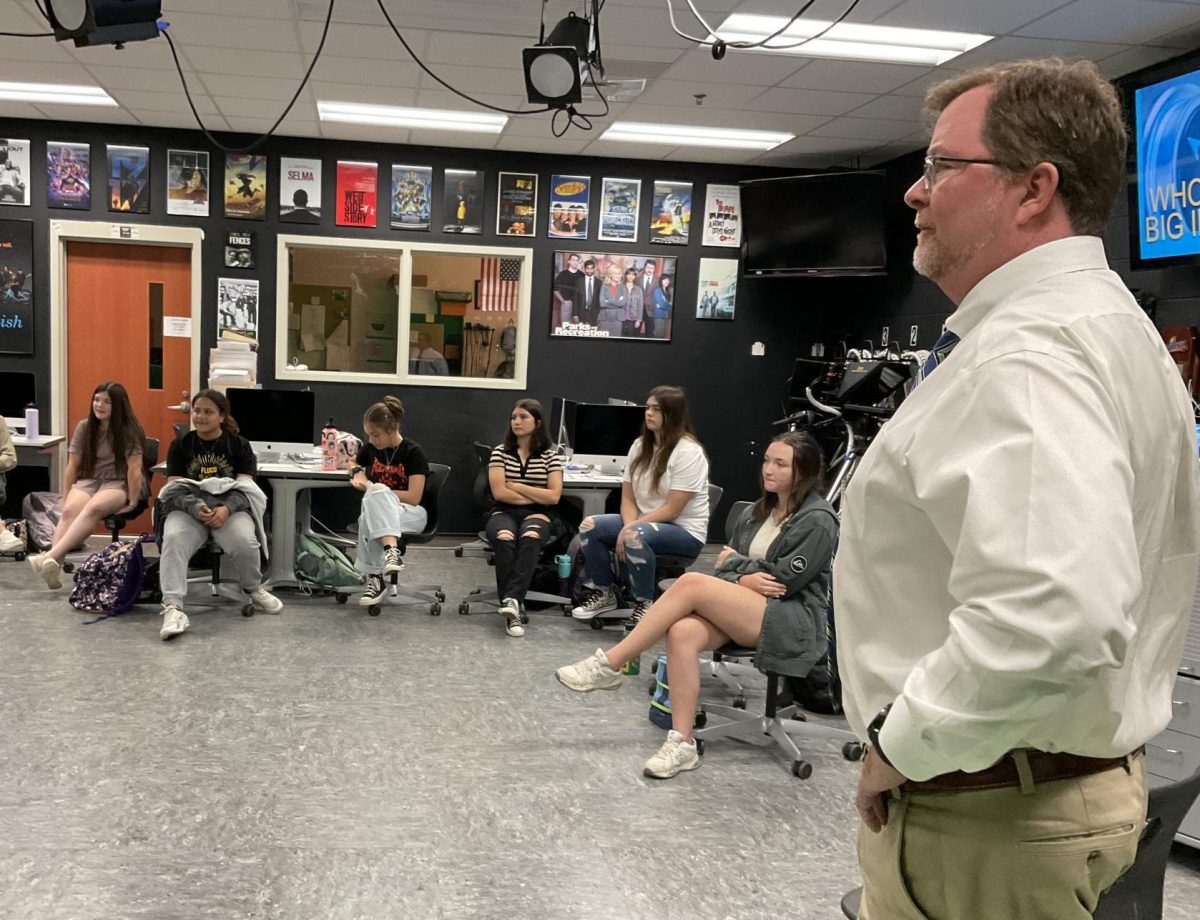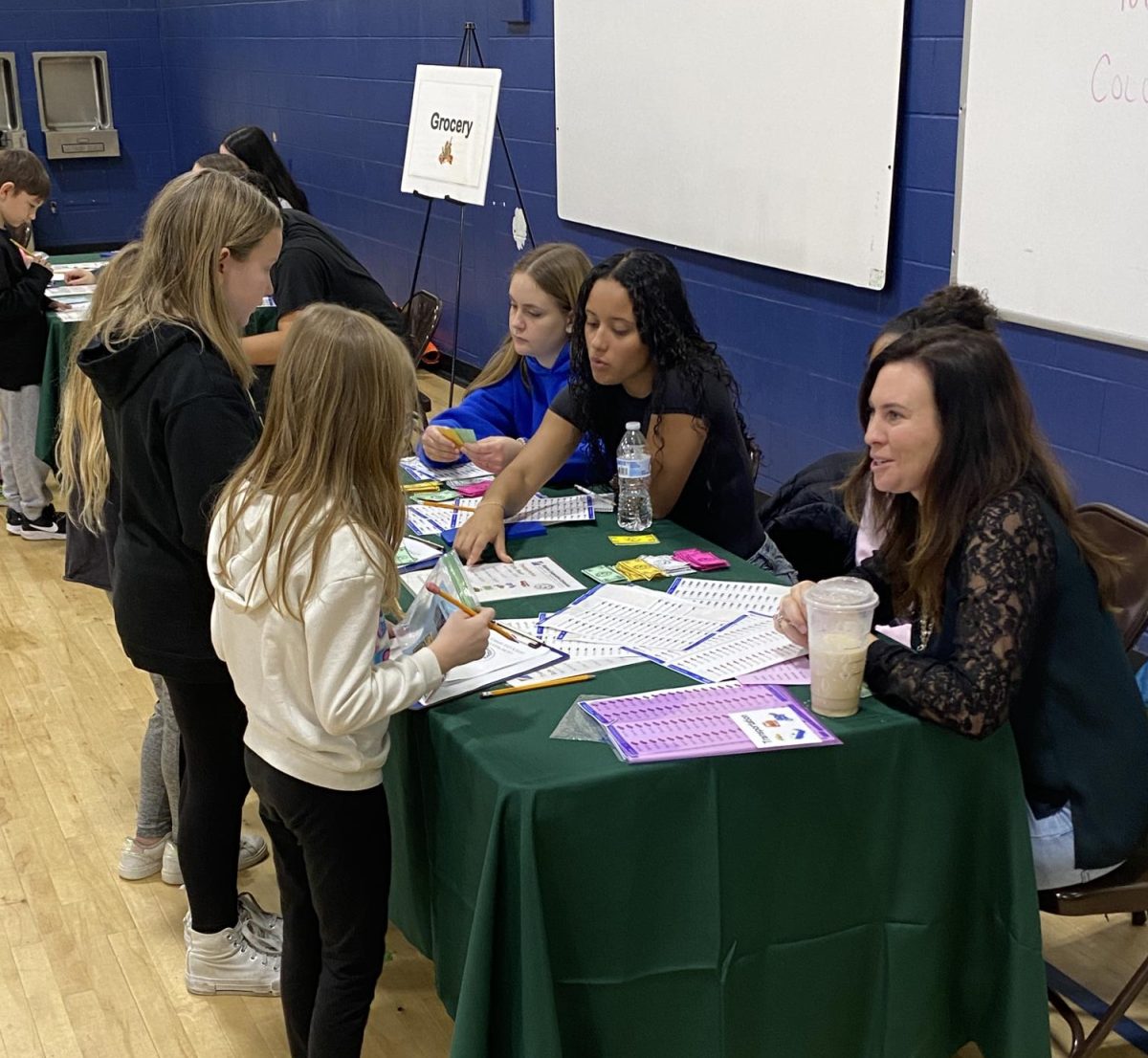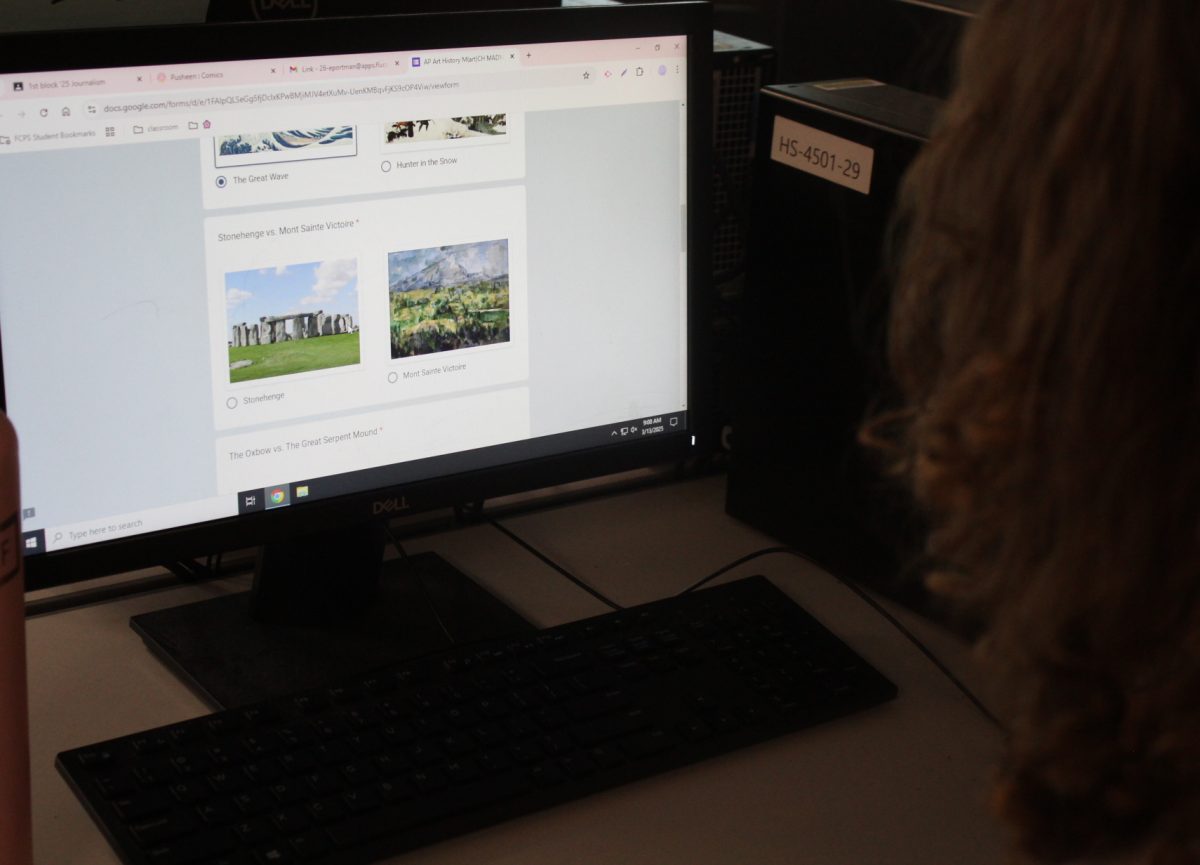The New Securly Blocking System Causes Issues
While there can be many impediments to getting schoolwork completed–including confusion, procrastination, and time–some students argue that seeing “Sorry, this website is blocked” should not be one of them.
Yet as of mid-September, Many students and staff members have been experiencing difficulties when it comes to teaching or doing school work, largely because of the plethora of websites that have been blocked on the school computers and Chromebooks through the new Securly system which not only hosts the new Securly Pass system but also allows the district to monitor school computers.
Frustrations have been popping up when class instructions come to a grinding halt every time a link to an educational website is blocked on student or staff computers. Complaints about students being unable to complete assignments on assigned websites have become common, as sites ranging from YouTube to local news sites to even sites like the FCHS student news site The Fluco Beat have been unexpectedly blocked.
“The lack of access to websites makes me mad because PVCC has been blocked before and I wasn’t able to do my work,” said junior Breeanna Miller who is taking PVCC US History.
As well as not being able to access some school assignments, the Securly system has made it difficult for some academic teams, like Forensics, to do the research necessary for their sport. Many websites which had previously been available to students suddenly got a “Sorry, this website is blocked” notice, making it impossible for students to get quotes for essays, read up on topics, or access a website posted by a teacher.
“I have noticed the new blocking system on the Chromebooks because whenever I have to do research for an assignment, most of the websites I click on are blocked,” said junior Mikaela King.
The blocking is the result of the district responding to the risk of identity theft and hacking attacks. The Securly blocking system attempts to block websites that could be risky for students and staff to access.
“My team has to take the online security of the division very seriously since there are many threats online by foreign countries (think China, Russia, Iran, N. Korea) and other hacker groups that are focusing on U.S. school divisions because of the amount of personal identifiable information that we have and how valuable that is,” said FCPS Director of Technology Joshua Gifford.
As a result, Gifford explained, “Any website, good or bad, has the potential to be infected with malware or ransomware, and the latter of those can lead to a significant cost to the division, as well as the worst case scenario of student and staff personal identifiable information being stolen. We have partnered with the Center of Internet Security and one of the things they recommend that we do is prevent access to web sites that are not categorized with a positive reputation or are listed as uncategorized in our content filter.”
He noted that sites that are uncategorized either tend to be new, or are still being evaluated for whether they are safe or not, a process which takes time.
“When Technology changed the filters in early September, I had three Journalism students email me within an hour telling me that the Fluco Beat, Yearbook Avenue (which we use to the make the Fluco yearbook, and FLOW (an online newsroom which we use to publish the Fluco Beat) were all suddenly blocked,” said Journalism teacher Elizabeth Pellicane.” Luckily, it was an easy fix, and I submitted Helpdesk tickets to Technology and they quickly unblocked the sites,” she added.
So while it can be annoying, the blocking system is designed for the good of the school district because of the endless supply of online threats the student body is exposed to every single day. If a student encounters a website that they believe should not be blocked, they can notify their teacher who can then fill out a Helpdesk ticket with Technology.
“Students can also submit a student Helpdesk ticket and list the URLS directly rather than requesting their teacher do it on their behalf if that is easier for them,” said Josh Gifford in technology.







